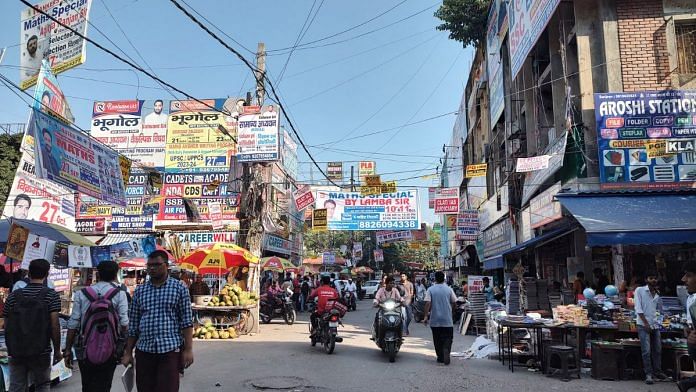Every year, hundreds of young people come to Delhi’s Mukherjee Nagar and Rajinder Nagar with dreams of becoming IAS officers. They scrimp and save and take loans to enrol in ‘prestigious’ coaching institutes and prepare for the UPSC examination. Joining civil services has always been a dream for lakhs of Indians, but in recent years, it has become corrupted—with false motivation and unrealistic hopes.
And it’s feeding our popular culture. The dreams and struggles of aspirants are fueling the production of books, television series, Bollywood movies, and Instagram reels. Vidhu Vinod Chopra’s latest movie 12th Fail, about an aspirant who once failed his board exams but became an IPS officer, was a box office hit.
But such success stories are as rare as unicorns in the start-up ecosystem. There are a thousand stories of failure that are barely talked about.
“Main bahut piche reh gaya yaar (I’ve been left behind),” said a character on TVF’s web series Aspirants, who couldn’t clear the UPSC exam but teaches aspirants. Despite the setbacks, he is still attached to the UPSC ecosystem.
When you give so much of your energy, time, and hard work to something, you don’t detach from it easily. It’s the story of hundreds of young people in Karol Bagh and Mukherjee Nagar.
Also read: With 12th Fail, Bollywood discovers Mukherjee Nagar stories. Classes, clamour, commerce
How it starts
Most aspirants start preparing for the UPSC exam when they’re 20 to 21 years old. If they fail to make the cut, they keep trying—again and again and again. Their most productive, youthful years are spent trying to crack this one exam.
That the pass percentage for the UPSC exam is depressingly low — 0.2 per cent — is now popular knowledge. So the rest of the aspirants use up all their attempts and enter their 30s feeling like losers. This is the harsh truth no one talks about.
And then the process restarts with a fresh batch: Influencer teachers feed motivation through the quotes they post on Instagram and YouTube videos. Big coaching institutes draw in millions every year. The flawed logic of hard labour translating into success is hammered into the students every day, no matter how superficial that ideal might be in today’s world.
So, aspirants and parents continue to buy the ‘IAS dream’.
When results for a particular year are declared, it gets worse. Photos of successful candidates are plastered on billboards and hoardings, and newspapers run full-page ads to add to the glamour. Toppers are treated like heroes.
On the flip side are those who don’t find their name on the list. We don’t see the dejection, depression and loss of motivation. Parents, meanwhile, are oblivious that the UPSC grind can be cruel and merciless. They don’t realise that sometimes being smart and hardworking is simply not good enough.
In today’s age of social media stardom and influencers, UPSC toppers are the stuff of glamour and glory. It all started with Tina Dabi securing the first position in her first attempt at cracking the exam in 2015. Toppers’ every action is made into reels that are forwarded and tweeted a hundred times over.
In the narrow streets of Mukherjee Nagar and under the big posters of coaching centres, young men and women live a robotic existence. They sleep in shared rooms and munch on biscuits all day while studying in the library. Rinse. Repeat. Rinse. What a waste of talent and youth.
Views are personal.
(Edited by Humra Laeeq)



